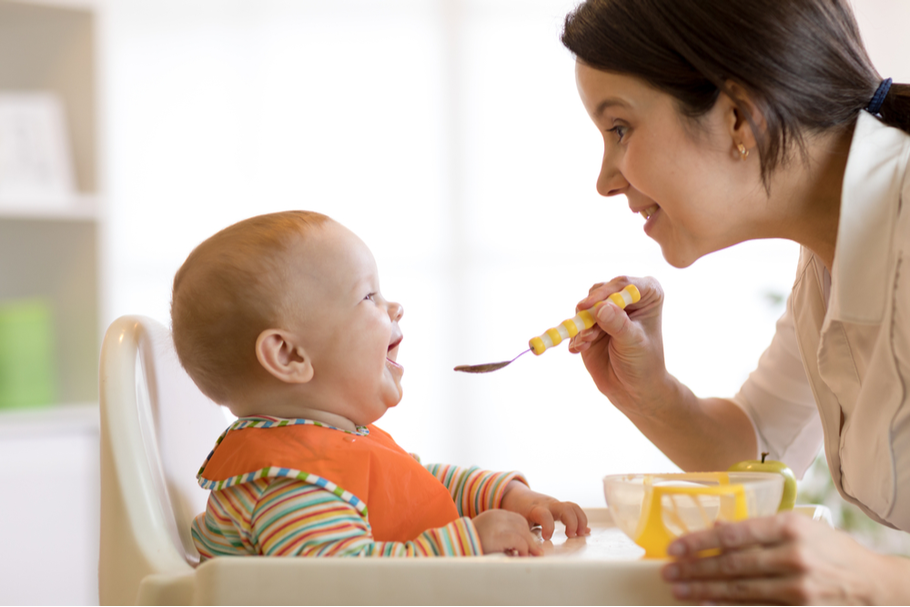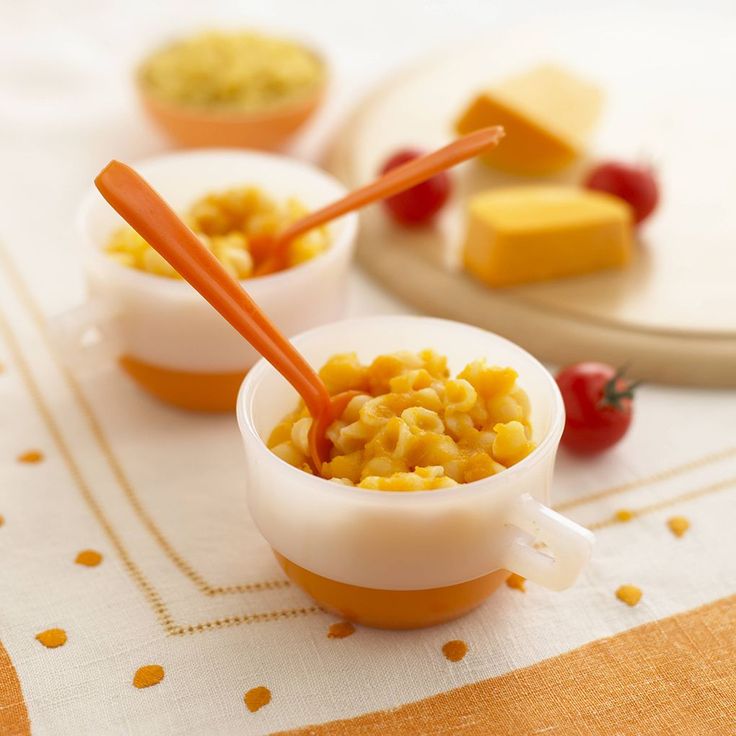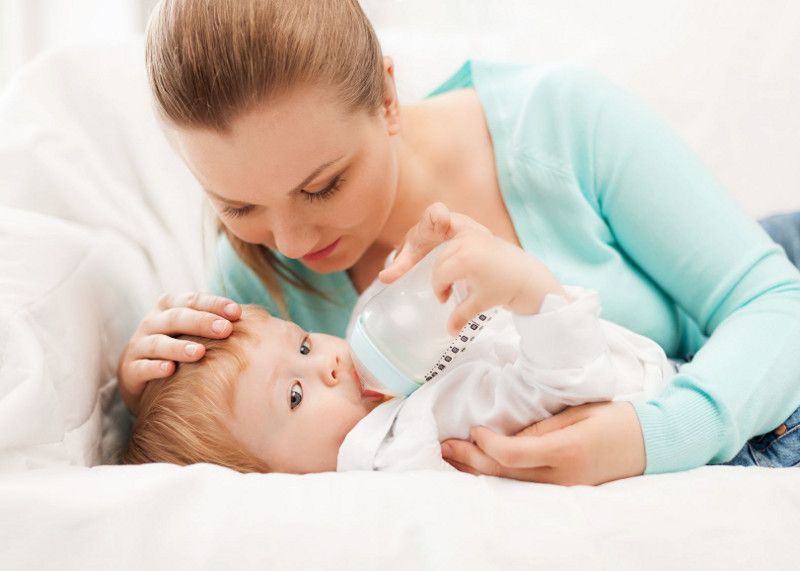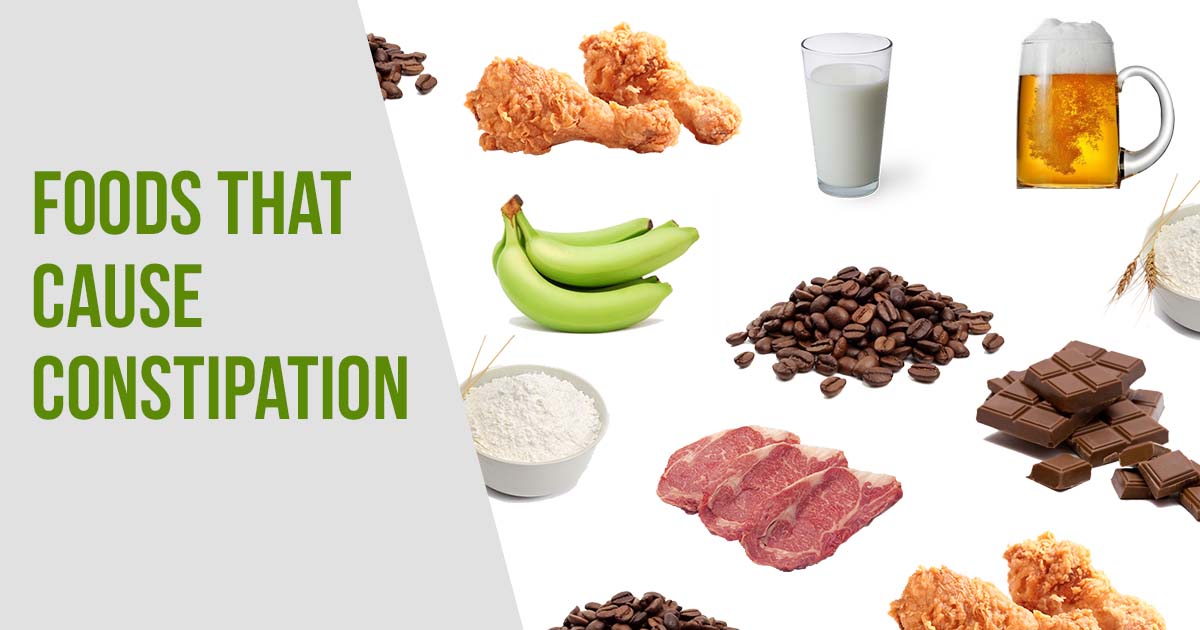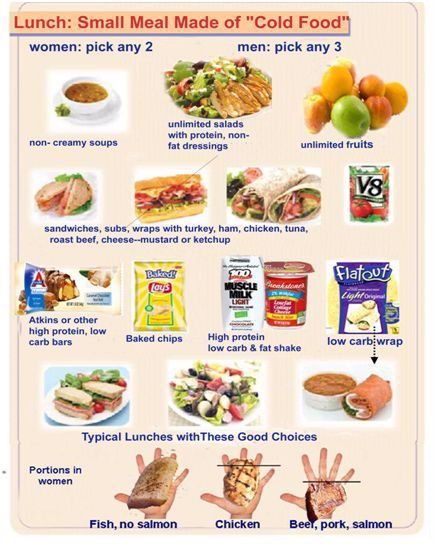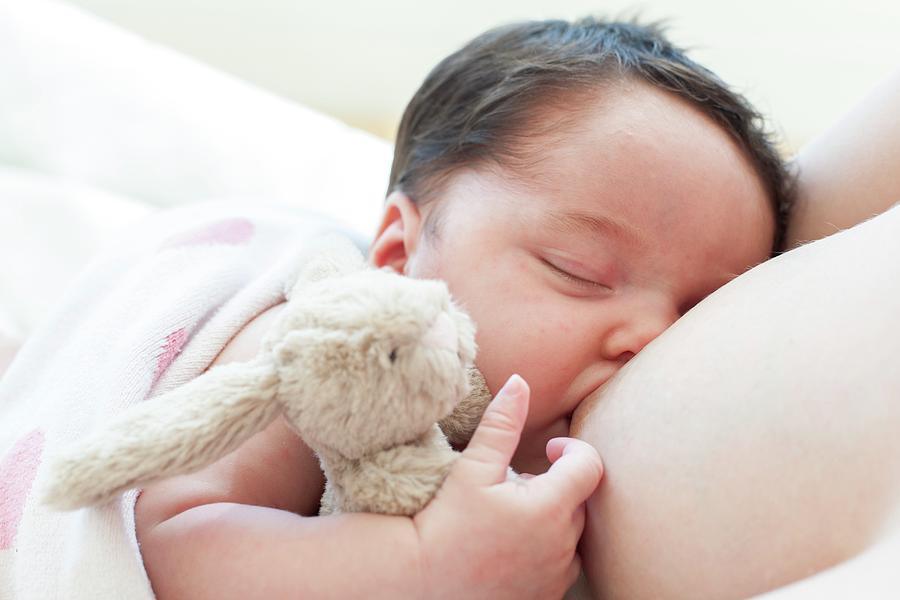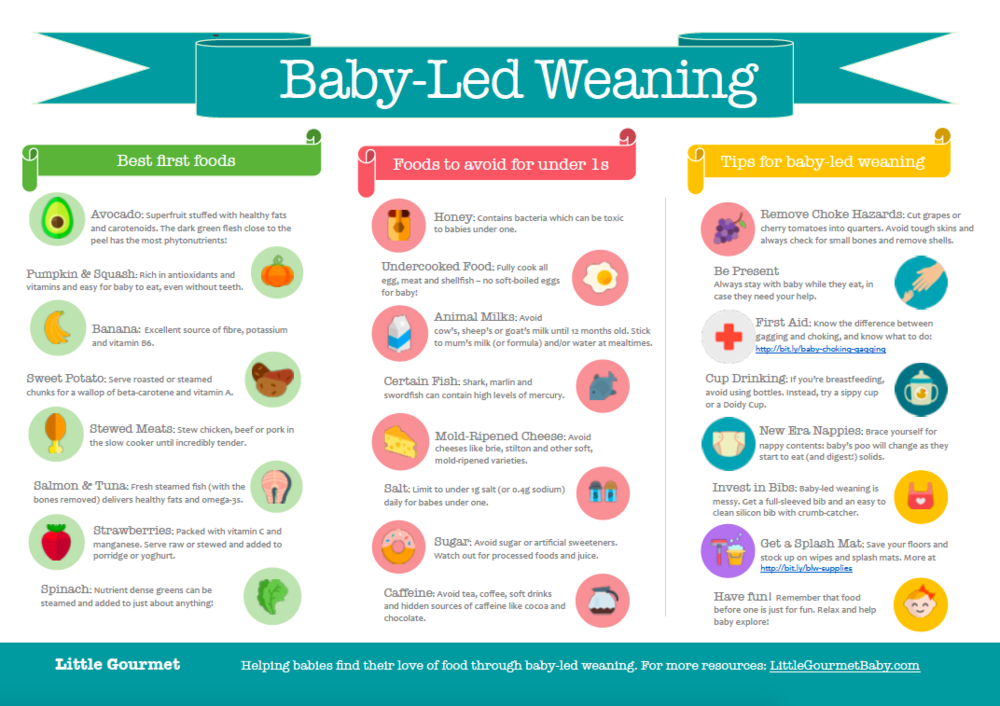Olive oil babies food
The Benefits of Olive Oil for Babies
Thanks to its high levels of antioxidants and beneficial fatty acids, consuming extra virgin olive oil has been associated with loads of health benefits—from boosting heart health to curbing risk of cancer and neurodegenerative diseases like Alzheimer’s.
But if you’re a new parent or parent-to-be, you might find yourself wondering: Do the benefits of olive oil extend to babies? Turns out, that answer is a little complicated.
While the internet is full of olive oil home remedies for little ones, many of these articles are full of outdated information that could put your child at risk. Spoiler: straight, undiluted olive oil is not ideal for regular use on a baby's skin.
Here, we set the record straight on when it’s safe to add olive oil to your baby’s diet, and whether it’s an effective way to treat common ailments such as eczema, ear aches, and more.
First off, is it safe for babies to eat olive oil?
Just like it's great for adults, extra virgin olive oil (or any type of olive oil) can be a safe and healthy component of your baby’s diet—that is, after they turn 6 months old. While it's unlikely to cause major health problems prior to that, the 6-month mark is generally when pediatricians recommend adding in foods beyond just breast milk and formula.
So, why should you consider adding olive oil to your baby’s diet in the first place?
- Olive oil is loaded with monounsaturated fatty acids (some of which are also found naturally in breast milk, including oleic acid and linoleic acid ). It’s widely regarded as safe for babies when drizzled onto food, pureed with veggies and fruits to make homemade baby food, or used to cook meats, fish, and eggs.
- Extra virgin olive oil, specifically, is packed with polyphenol antioxidant compounds that promote overall health, reduce inflammation, and combat oxidative stress—all things that affect little ones, too, not just adults. Certain highly processed vegetable oils, on the other hand, may actually promote inflammation.
- Healthy fats are an essential fuel for babies’ growing brains, as it helps form the protective myelin coating that surrounds neurons (brain cells), and promotes the absorption of other essential vitamins and minerals found in food.
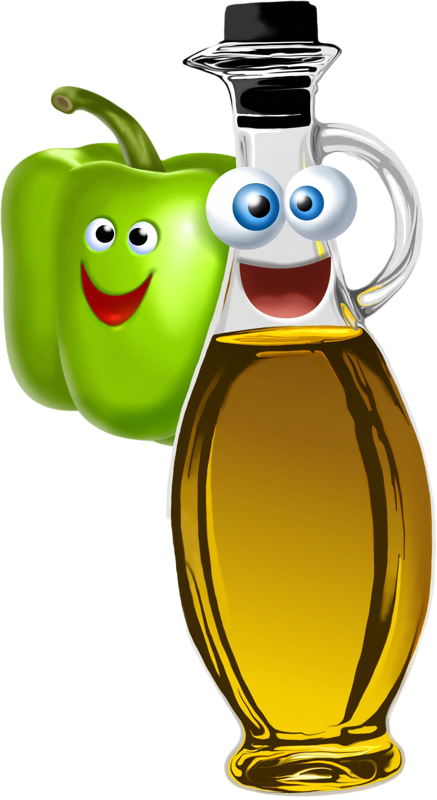
- Some pediatricians have even recommended adding a little olive oil to babies’ diets as a way to promote weight gain if they’re going through a period of picky eating. Of course, you should always check with your pediatrician on the recommended quantity first, since excessive amounts of olive oil (or any oil) can cause diarrhea and GI discomfort.
Of course, you still need to be mindful of potential allergic reactions with olive oil, or any food. So start slow and monitor for side effects.
Can olive oil help with baby colic and digestion?
Olive oil is often touted as a home remedy for baby constipation and colic. Colic is a common condition among infants characterized by frequent, prolonged and intense crying or fussiness that’s often thought to be caused by constipation, gas, or other digestive issues.
However, most colic episodes peak around 6 weeks and decline significantly at 3 to 4 months. In these cases, olive oil would not be a suitable remedy, since babies shouldn’t consume olive oil until they’re around 6 months old, per American Academy of Pediatrics.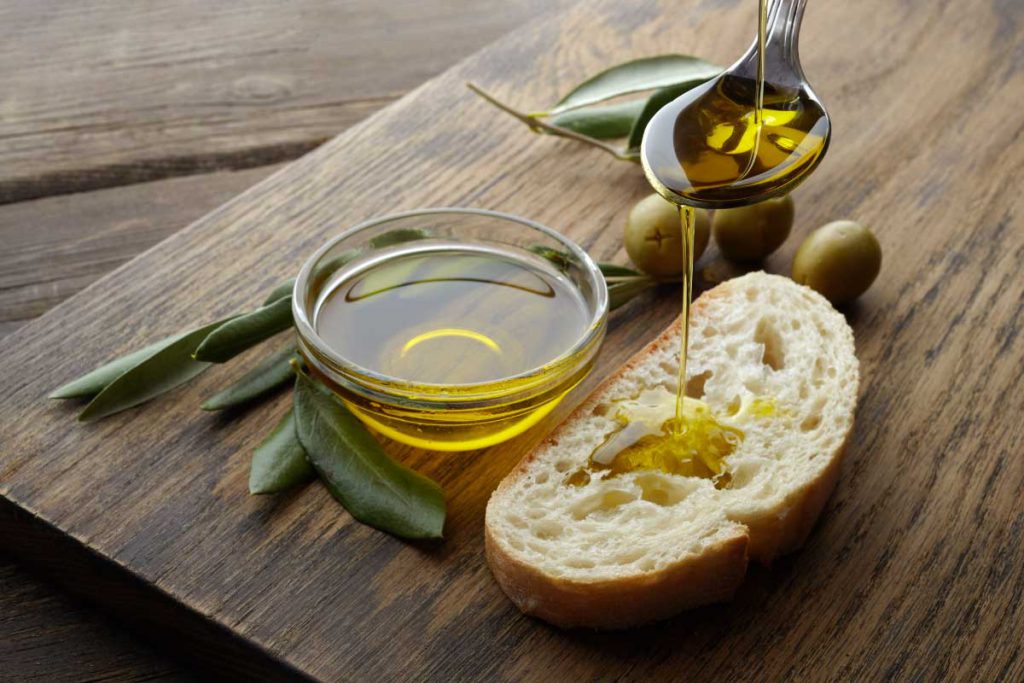
As for constipation? While no research has been done on olive oil’s effectiveness for treating constipation in babies or children, recent research on adults suggests it has a subtle laxative effect and boosts the frequency of bowel movements. However—and we can’t stress this enough—it’s so important to check with your baby’s pediatrician before self-treating at home.
Can olive oil help with baby dandruff or cradle cap?
Cradle cap is a patchy, scaly, yellowish rash that begins on newborns’ scalps around 2 to 6 weeks. It’s similar to dandruff and thought to be caused by hormones from the mother that cross the placenta before birth.
Massaging olive oil through your baby's hair with your fingers or a washcloth is a common internet remedy for cradle cap, but it’s not a good one. According to the American Academy of Pediatrics, olive oil may actually promote the growth of yeast on the scalp and make cradle cap, or any form of dandruff, worse. However, gently massaging your baby’s scalp with your fingers or a soft brush while their hair is lathered with baby shampoo is a-okay.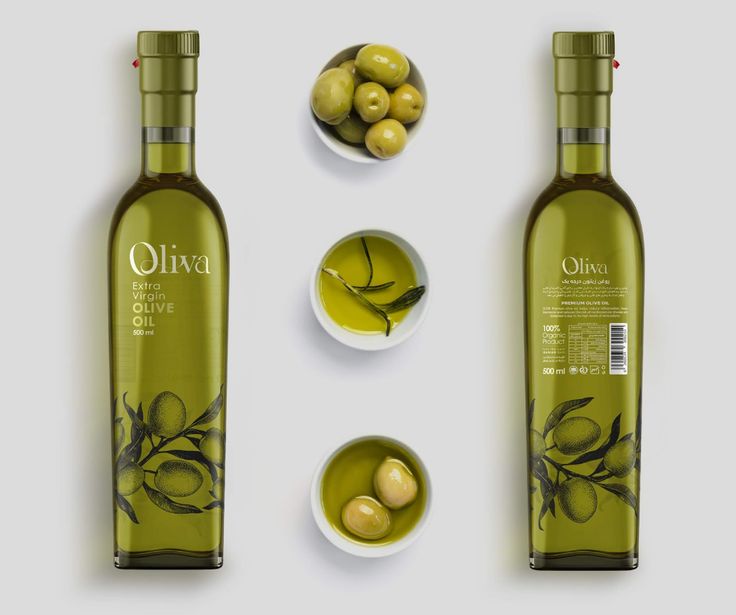
Is an olive oil massage safe for babies?
A baby massage can be a great bonding activity for parent and child. But while you may be tempted use extra virgin olive oil as a massage oil—since it contains both nourishing vitamin E and antioxidants)—it's actually not the best choice for anyone's skincare routine.
While applying olive oil to the skin every now and then probably won’t cause big problems, one study found that massaging newborn babies’ skin with a few drops of undiluted olive oil or sunflower oil twice daily for 4 weeks caused a delay in the development of the protective lipid skin barrier that normally helps prevent water loss and protect against infections and allergies.
This goes for adults, too. An earlier study found that adults who used olive oil as a moisturizer for 4 weeks experienced mild skin redness, possibly due to the damaging or thinning of the skin barrier. The culprit? Olive oil’s high content of oleic acid—a fatty acid that does wonders for your health when you eat it, but that's known to make skin redness and irritation worse.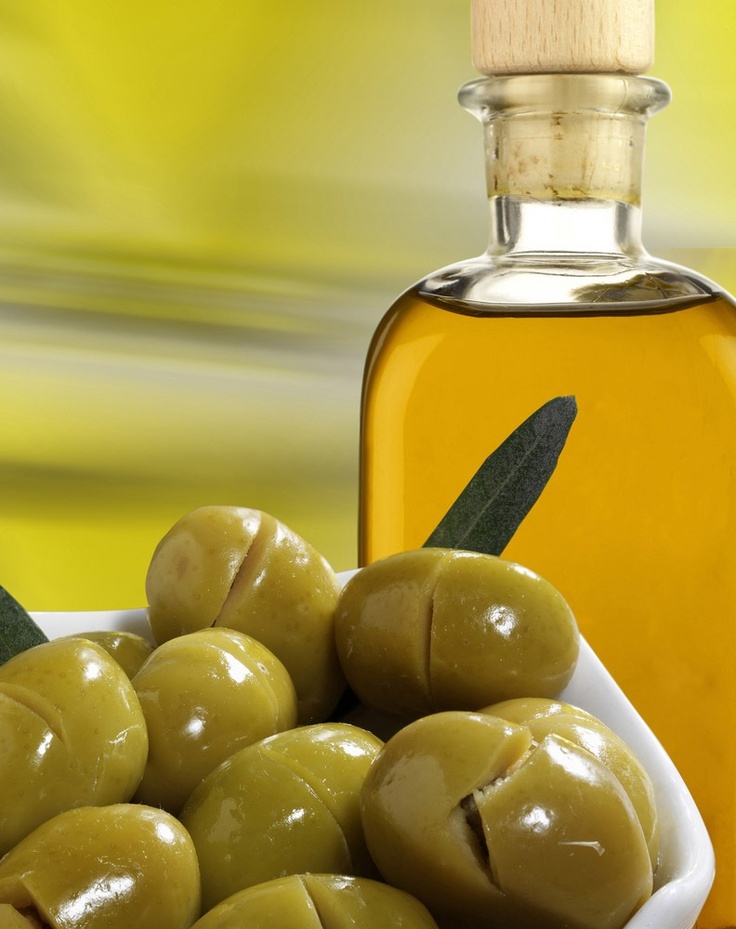
Because of this, using olive oil on your baby’s skin, especially if they already have dry skin, may aggravate conditions like eczema.
Natural oils that seem to be safer for direct use on a baby's skin and for baby massages include virgin coconut oil and jojoba oil.
Can olive oil help with diaper rash?
Several online sources recommend creating an emulsion with 2 parts olive oil to 1 part water as a natural remedy for diaper rash. But this level of dilution probably isn't enough to protect a baby's delicate skin from the irritating effects of oleic acid over time.
Plus, an olive oil and water emulsion isn't thick enough to make an effective diaper rash remedy—ideally, you want something that can form a protective barrier against the irritating moisture that causes diaper rash.
That said, there are plenty of home remedies for diaper rash that include olive oil as just one of several ingredients, and these are probably much more effective. This DIY diaper rash salve created by Cate Sibley, PharmD, contains olive oil, coconut oil, beeswax, and essential oils.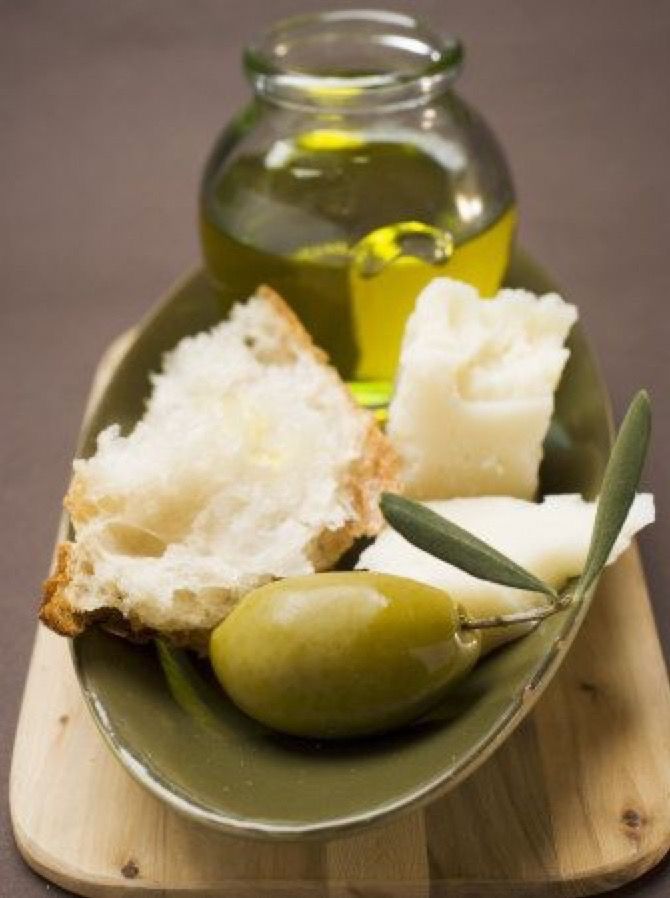 Not only is this combination of ingredients soothing, but the beeswax helps create a barrier against moisture that allows your baby's skin to heal and shields it from further irritation.
Not only is this combination of ingredients soothing, but the beeswax helps create a barrier against moisture that allows your baby's skin to heal and shields it from further irritation.
It’s not clear, however, if this would be any more beneficial than standard diaper rash creams.
Can olive oil help with a baby’s cough?
Consuming olive oil won’t do much for a cough, but some people swear by DIY vapor rubs that combine an oil (often olive oil, coconut oil, or almond oil) with beeswax and therapeutic essential oils like eucalyptus. In this case, the olive oil isn’t really imparting much of a benefit of its own, it’s just helping dilute the essential oils and make them “spreadable.”
These can potentially be beneficial, but you have to be very careful: Essential oils are potent, and many homemade vapor rub recipes online are too strong for babies and could actually interfere with breathing. Some essential oils such as clove and rosemary should never be used on babies.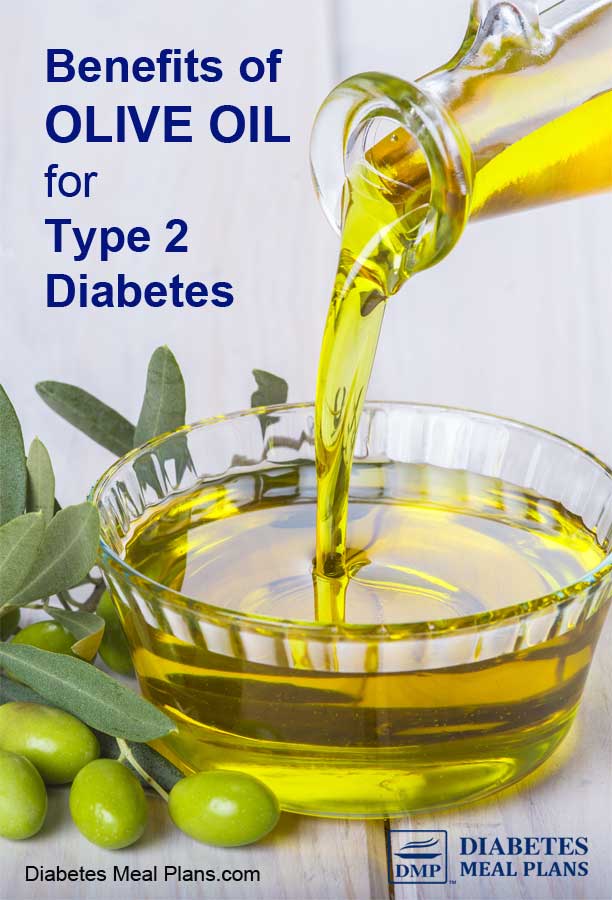 Always look for a recipe that has instructions on how to adapt it for babies and that’s ideally been medically reviewed (like this one). If you have any doubts, ask your pediatrician.
Always look for a recipe that has instructions on how to adapt it for babies and that’s ideally been medically reviewed (like this one). If you have any doubts, ask your pediatrician.
Can olive oil treat baby ear infections?
If your baby is tugging at their ears and crying more than usual, they could potentially have a very painful ear infection—and yes, olive oil may actually help.
While it probably won’t cure the infection, well-known pediatricians like Dr. Bill Sears, MD, along with the American Academy of Pediatrics, say that olive oil may help alleviate the pain that accompanies ear infections. Simply use a dropper to put a few drops of warm (not hot!) olive oil in your baby’s affected ear.
Just be sure to inspect your baby’s ears first. If there’s any fluid draining from the ear, that could indicate a ruptured eardrum, in which case you do not want to use olive oil. Always consult a doctor if there’s any discharge, if your baby has a fever, or if symptoms persist for several days.
Olive oil can definitely be part of your baby's overall wellness routine, or used as an ingredient in extra nutritious baby food—but it’s certainly not a miracle cure for every baby ailment.
While it may be somewhat beneficial for ear infections, constipation/ colic, or blending with other ingredients to make a vapor rub or diaper rash cream, undiluted olive oil should not be used as a topical skin treatment on a regular basis, especially not on dry skin or eczema.
As always, if you have a specific question or concern about using olive oil with your baby, check with your pediatrician.
Olive Oil In Baby Food...?
Olive oil is an ingredient we include in some of our baby food recipes – although we’ve occasionally received e-mails asking why we would suggest using oils in any food intended for babies.
The fact is that a good olive oil is a source of nutrition in itself, revered in some parts of the world for its health-promoting benefits.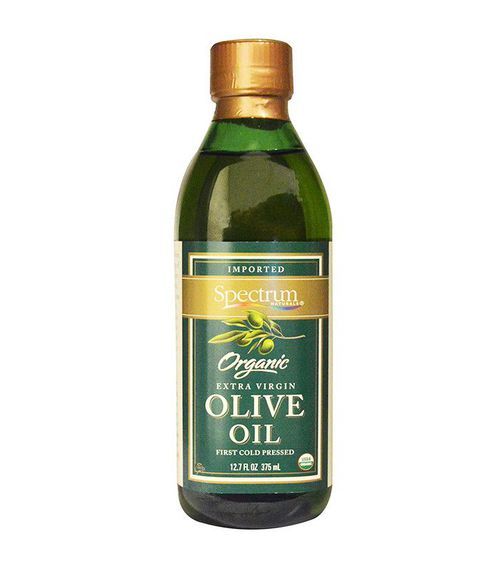
You’ll probably find lots of different products labelled as olive oil in the grocery store – but what YOU are looking for is extra-virgin olive oil (EVOO). This is olive oil taken from the first, ‘cold’ press of the olives to extract the oil – no heat is used and no chemical processing takes place.
Unsurprisingly, this makes extra-virgin olive oil the healthiest type of oil to use, with all its nutrients intact!
Other grades of olive oil – such as ‘refined’ or ‘pure’ olive oil – will have undergone some degree of processing, depleting their nutritional value. So-called ‘light’ olive oils may even contain other vegetable oils too – we recommend giving them a miss!
Today, we’ve compiled a list of some of the well known – and less well known – benefits of consuming extra-virgin olive oil.
If you weren’t already adding a little to your baby’s food, then this may just tempt you to give it a try…
- Olive oil contains monounsaturated fats – beneficial fats that, in the long term, help lower ‘bad’ cholesterol and raise ‘good’ cholesterol.
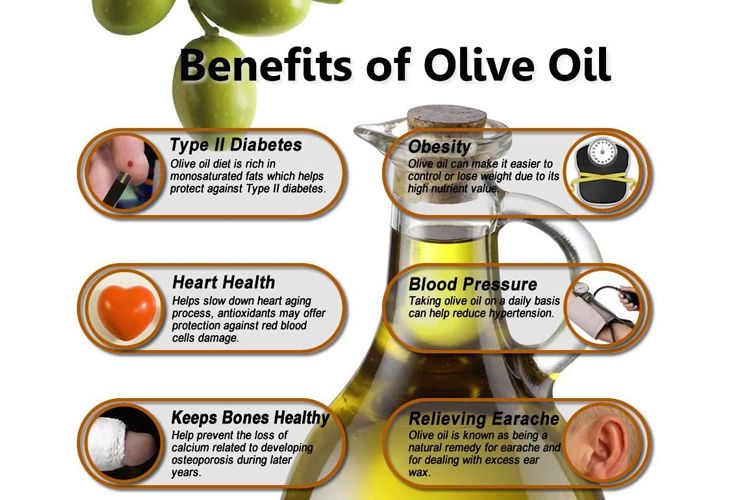
- It contains linoleic and linolenic acids, fatty acids which are also contained in breast milk and contribute to the development and growth of baby’s bones. Olive oil can also help women retain bone mass in later life.
- It contains vitamins A, C, D, E, K – plus B vitamins. It is a rich source of anti-oxidants, which help prevent serious illnesses like heart disease and cancer. As we mentioned above, these anti-oxidants are infinitely more abundant in extra-virgin olive oil than in any other grade – and researchers now feel that it is the anti-oxidant components of olive oil that make it such a source of good health and long life to those who follow a Mediterranean diet.
- The oleic acid in olive oil (also present in breast milk) helps support the growth and development of your baby’s brain.
- Olive oil has anti-inflammatory properties, which can help prevent – or limit the severity of – asthma.
- It is gentle on the tummy and some people even find it has a mildly laxative effect, making it useful for avoiding constipation and keeping baby ‘regular’.
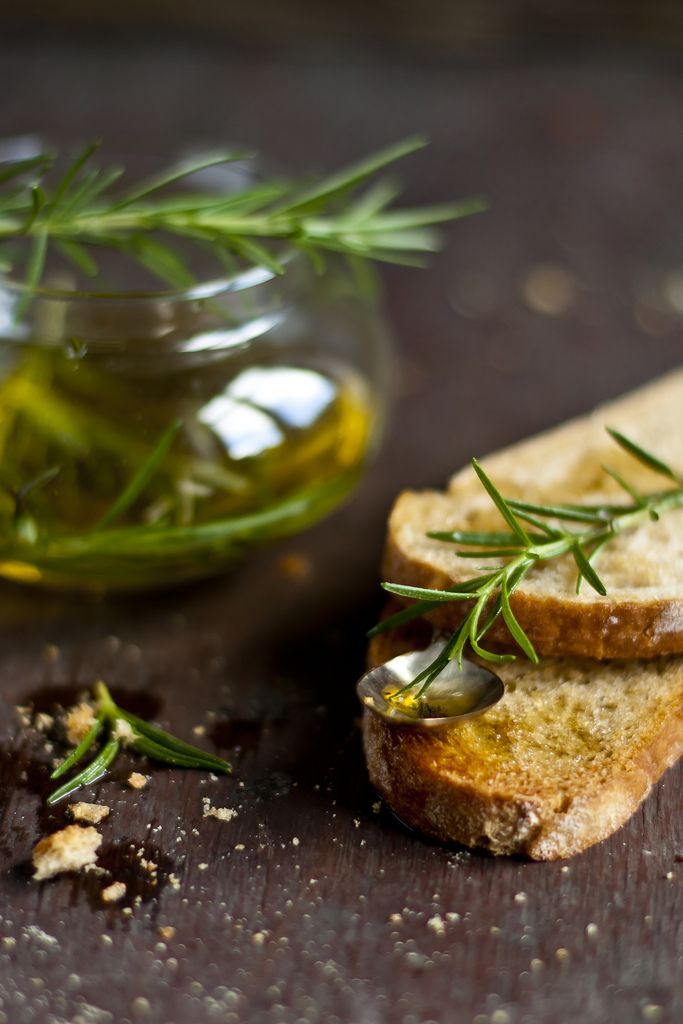 Don’t overdo it, though – too much in a young baby may contribute to diarrhea.
Don’t overdo it, though – too much in a young baby may contribute to diarrhea. - Olive oil is high in calories and it is sometimes recommended by doctors and dietitians for premature or low birth weight babies or for other babies with feeding difficulties, who require a large amount of calories in a small amount of food.
When may I start adding olive oil to my homemade baby food recipes?
You may – with your doctor’s consent – use a little olive oil in your baby food recipes from 6 months of age. As per guidelines from the American Academy of Pediatrics, UNICEF and the World Health Organization, babies under 6 months of age receive all the nutrition they need from breast milk or formula.
Olive oil rarely causes allergic reactions – but we recommend serving it to your baby for the first time with a food to which he has already been safely introduced. That way – if any reaction does occur, then you will be able to identify olive oil as the culprit and discuss the situation with your doctor.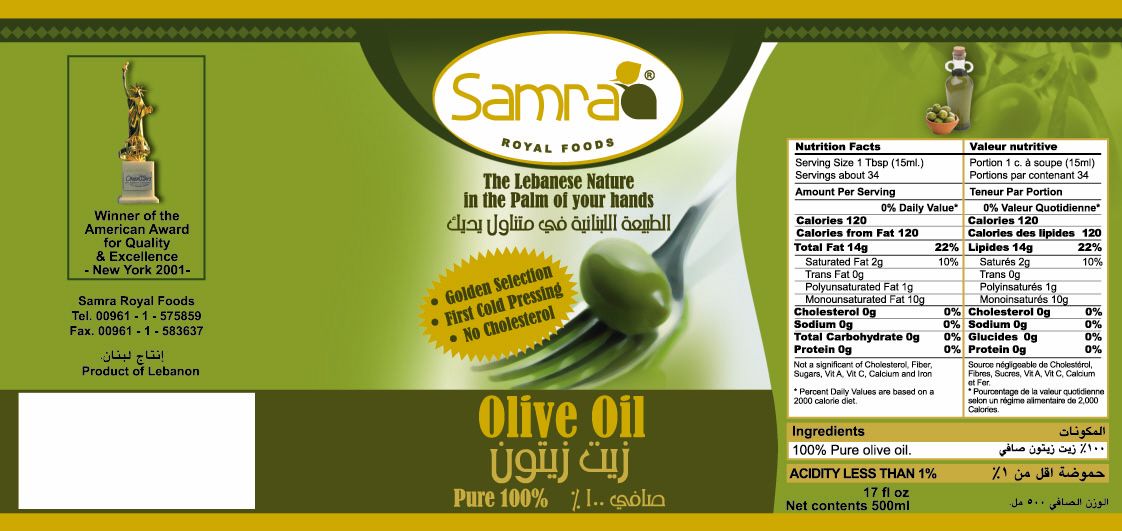
Using olive oil in your homemade baby food recipes
Even good fats should be eaten in moderation – so don’t add too much to your little one’s food. For a 2 oz serving of food, no more than 1/4 to 1/2 tsp olive oil should be added.
- Use olive oil in place of less healthy cooking oils, like margarine and shortening. If you find the rich flavour of extra-virgin olive oil a little overpowering for cooking, then use a lower grade olive oil with a lighter taste and add the extra-virgin oil after the food has cooked.
- Instead of buttering whole wheat bread, try drizzling on a little EVOO instead! For older babies, offer the oil as a dip.
- Drizzle it on to cooked veggies you’ll be serving as finger foods, or add to the food processor when blending your baby’s veggie purees.
- Stir into mashed potato – delicious!
Source:
Mayo Clinic – Nutrition and Healthy Eating
Please tell us how YOU use olive oil in your homemade baby food recipes!
How to include olive oil in the diet of the smallest
Olive oil in the diet of children
Olive oil is useful not only for adults, but also for children.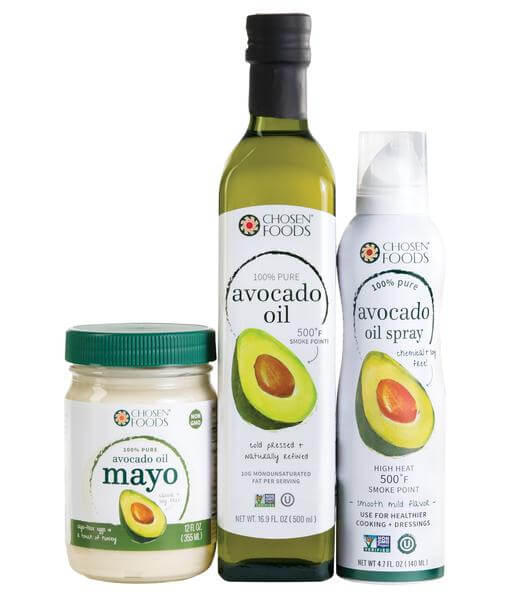 The secret, of course, lies in the composition rich in vitamins and minerals. Olive oil contains vitamins A, D, E, healthy omega-3, omega-6 fatty acids, linoleic and oleic acids, valuable antioxidants and amino acids. In composition and useful properties, this oil is very similar to mother's milk. nine0003
The secret, of course, lies in the composition rich in vitamins and minerals. Olive oil contains vitamins A, D, E, healthy omega-3, omega-6 fatty acids, linoleic and oleic acids, valuable antioxidants and amino acids. In composition and useful properties, this oil is very similar to mother's milk. nine0003
Regular use of olive oil strengthens the baby's immunity, favorably affects the digestive and cardiovascular systems, ensures the growth of healthy bones and well-formed muscles.
At what age should olive oil be present in a child's diet? According to the conclusion of the Research Institute of Nutrition, Extra Virgen ITLV olive oil can be given to children from 6 months, ½-1 teaspoon. You can add it to baby food, cereals and purees. nine0003
We share healthy recipes for dishes that can be safely combined with olive oil.
Important: all vegetables, fruits and cereals should be washed well before cooking and boiled in special water for baby food or in breast milk.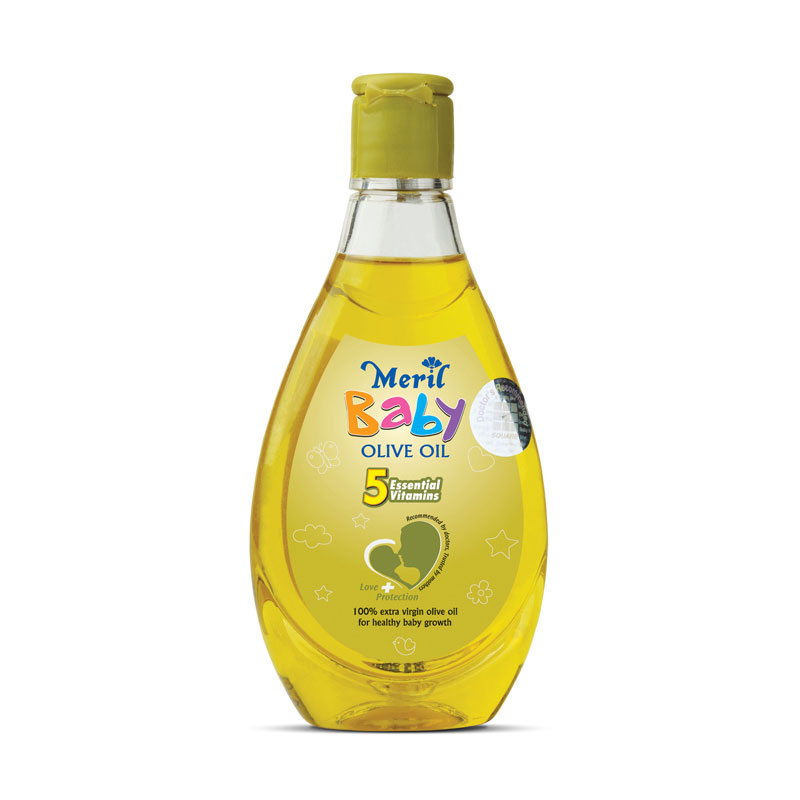
1. Applesauce is very popular among children. To prepare it, rub one apple on a fine grater, chop it additionally in a blender, and then add ½ teaspoon of olive oil and mix well. nine0003
2. Pumpkin puree is fed by a large number of mothers to their babies. Orange beauty has a rich composition and does not cause allergies. Boil one slice of pumpkin in boiling water for 5 minutes, and then grind with a blender. Add ½ teaspoon olive oil and stir. You can feed your baby!
3. Zucchini puree is prepared in the same way as pumpkin puree. Zucchini must be peeled before cooking. When serving mashed potatoes, do not forget to add ½ teaspoon of olive oil to it. nine0003
4. Apple-pumpkin puree is a very interesting and healthy combination. Boil the pumpkin in boiling water, grate the apple, and then grind both mixtures in a blender until smooth, adding 1 teaspoon of olive oil.
5. From the age of 10 months, the baby can be given meat puree .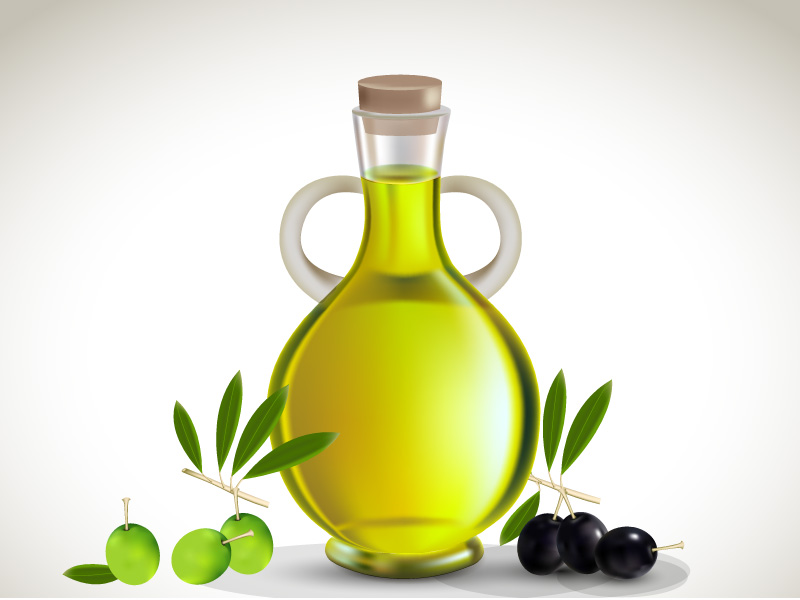 Boil fresh turkey, rabbit or veal meat until tender, and then grind in a blender with 1 teaspoon of olive oil and a small amount of vegetable broth (pumpkin, zucchini). nine0003
Boil fresh turkey, rabbit or veal meat until tender, and then grind in a blender with 1 teaspoon of olive oil and a small amount of vegetable broth (pumpkin, zucchini). nine0003
6. Oatmeal for babies is cooked very simply and quickly. Rinse the grits and grind into flour using a coffee grinder. Cook porridge in boiling liquid. It can be special baby water, vegetable broth or breast milk in the proportions: 1 teaspoon of cereal and 100 milliliters of liquid. Grind the finished porridge in a blender bowl, adding 1 teaspoon of olive oil.
7. Rice porridge is prepared in the same way as oatmeal. The main difference is that ground rice should be added to cold water during cooking. nine0003
Now you know all about the benefits of olive oil for babies and how to properly introduce it into a child's diet. May your children be healthy!
You will also be interested in other articles of the site:
- Benefits of olive oil for children
Can children use olive oil?
Can children take olive oil?
Every responsible parent takes their child's nutrition seriously, right? Especially when it comes to the smallest children under the age of 2-3 years.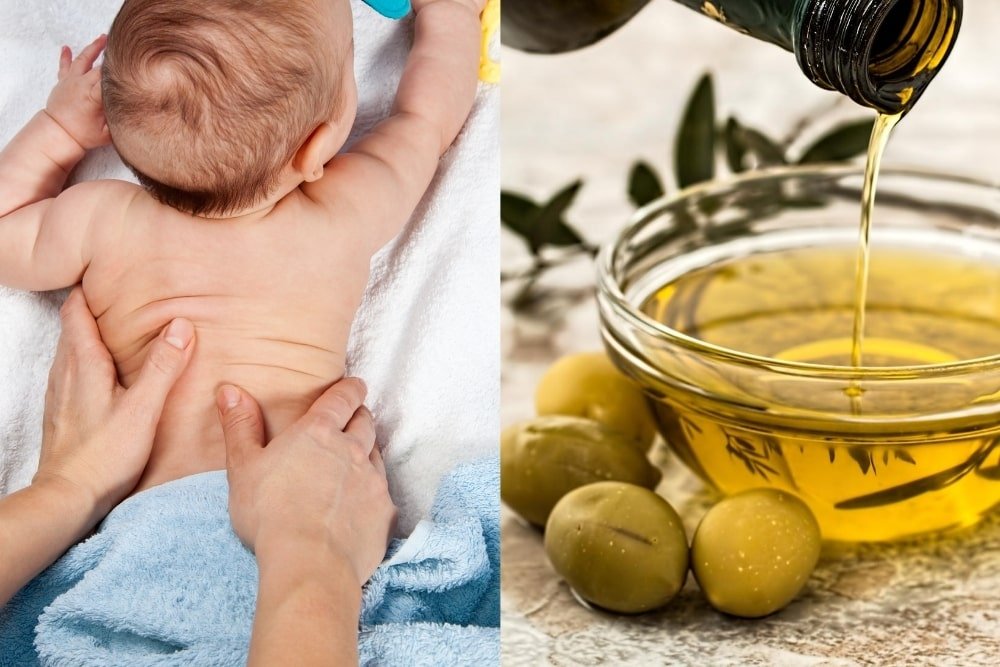 Indeed, in this period, the reaction to new products in a developing organism can be very different: from favorable to the most negative - which does not depend on how natural and useful a particular product is in itself. And therefore, the question of whether it is possible to give olive oil to children is quite logical and logical. And if so, when and how best to add it to the children's diet? nine0003
Indeed, in this period, the reaction to new products in a developing organism can be very different: from favorable to the most negative - which does not depend on how natural and useful a particular product is in itself. And therefore, the question of whether it is possible to give olive oil to children is quite logical and logical. And if so, when and how best to add it to the children's diet? nine0003
What are the benefits of olive oil for children?
Let's start with the main thing - with the answer to the key question posed in the title of this article: yes, it is possible and even necessary to give olive oil to young children. After all, this product has a unique balanced composition of various trace elements that help the growth and harmonious development of the child's body. True, in this situation it is necessary to immediately make a remark: all these, as well as the following words, fully apply only to the oils of the so-called first cold pressing, or in other words, the Extra Virgin category. Yes, it may be more expensive than others, but it is in this pomace of the olive that contains the maximum of useful substances. Among them, it is worth noting several of the most important for a small child at once:
Yes, it may be more expensive than others, but it is in this pomace of the olive that contains the maximum of useful substances. Among them, it is worth noting several of the most important for a small child at once:
- Vitamins A, E and D . It is hardly worth talking about the need for vitamin-rich nutrition for any person. But in the case of children, it is important that these vitamins not only participate in metabolism, improving it, but also help strengthen bone tissue. And this is the basis for the steady growth of the entire child's body.
- Fatty acids . Oleic, linoleic and other omega acids are an excellent source of healthy fats. They are needed to create cell membranes and make them both stronger and more elastic. Which favorably affects the development of the muscular system. These acids also help improve brain function. nine0048
- Antioxidants . Olive oil contains quite a lot of these substances.
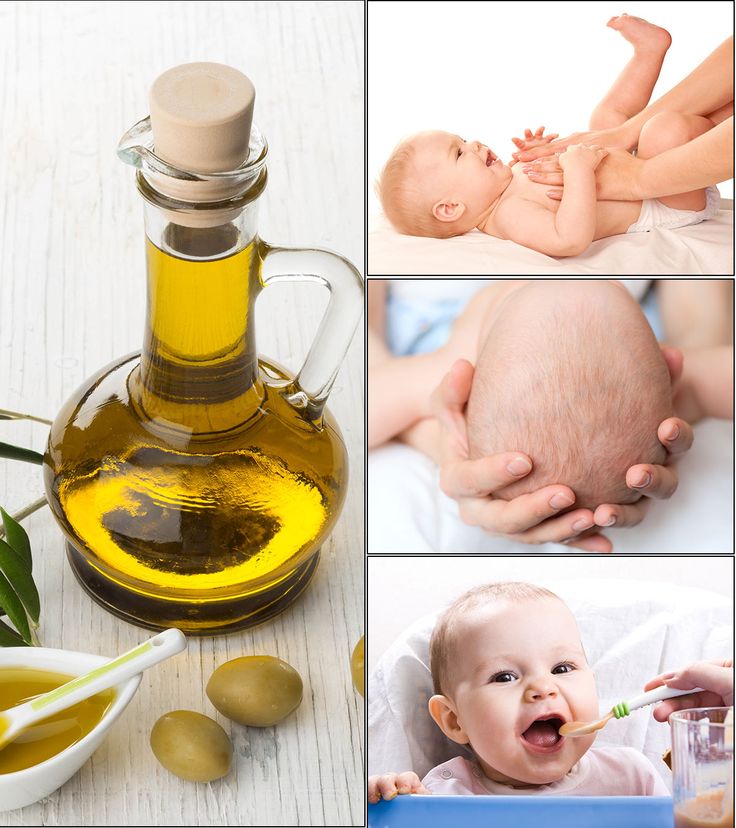 They block oxidative processes and free radicals, which can disrupt the integrity of cell membranes and even the structure of DNA. Therefore, antioxidants are very necessary: they prevent possible violations in the development of a small child.
They block oxidative processes and free radicals, which can disrupt the integrity of cell membranes and even the structure of DNA. Therefore, antioxidants are very necessary: they prevent possible violations in the development of a small child. - Phytosterols . These substances are involved in the regulation of cholesterol levels, which is necessary for a number of processes. Firstly, thanks to this, the body produces the right amount of hormones and vitamin D. Secondly, cholesterol is needed to produce all the same cell membranes. Thirdly, it is involved in the process of digestion. nine0048
Of course, the composition of olive oil is not limited to this list. But even such a list is enough to understand that this product can play an important role in the future development of your young children.
At what age can children be given olive oil?
It is possible to introduce olive oil into baby food quite early - from the age of 6-7 months.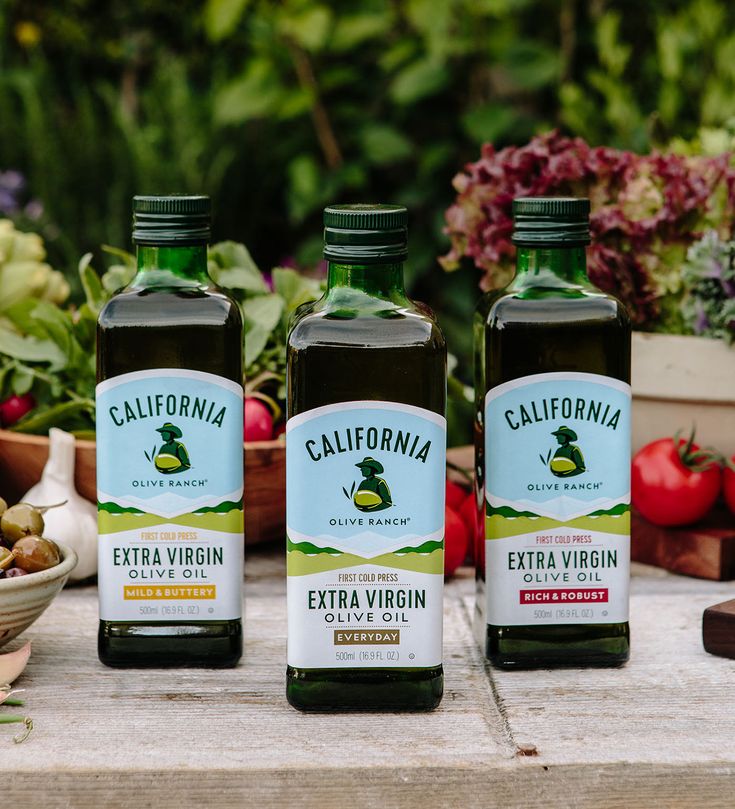 But, as with any other product new to the baby, it should be done very carefully and in small doses. The first portions should be minimal: literally 1-2 drops (1-3 g). Only somewhere in six months you can increase the volume to half a teaspoon. At the same time, it is desirable that the oil during this period be exclusively raw, simply added to mashed potatoes or soup. But it’s worth cooking or frying on it much later, when your baby is “adult” enough for this. By the way, the individual fatty acids in olive oil are very similar in composition to those found in breast milk. Therefore, for artificially fed children, such an addition to their diet will be very useful and “natural”. nine0003
But, as with any other product new to the baby, it should be done very carefully and in small doses. The first portions should be minimal: literally 1-2 drops (1-3 g). Only somewhere in six months you can increase the volume to half a teaspoon. At the same time, it is desirable that the oil during this period be exclusively raw, simply added to mashed potatoes or soup. But it’s worth cooking or frying on it much later, when your baby is “adult” enough for this. By the way, the individual fatty acids in olive oil are very similar in composition to those found in breast milk. Therefore, for artificially fed children, such an addition to their diet will be very useful and “natural”. nine0003
What is baby olive oil?
Sometimes in the store you can find oils marked "children's". But this is nothing more than a marketing gimmick! High-quality Spanish oil from Extra Virgin olives is absolutely safe at any age, the risk of allergy to it is virtually zero. And the composition described above is typical for any such product - even "adult", even "children's".


